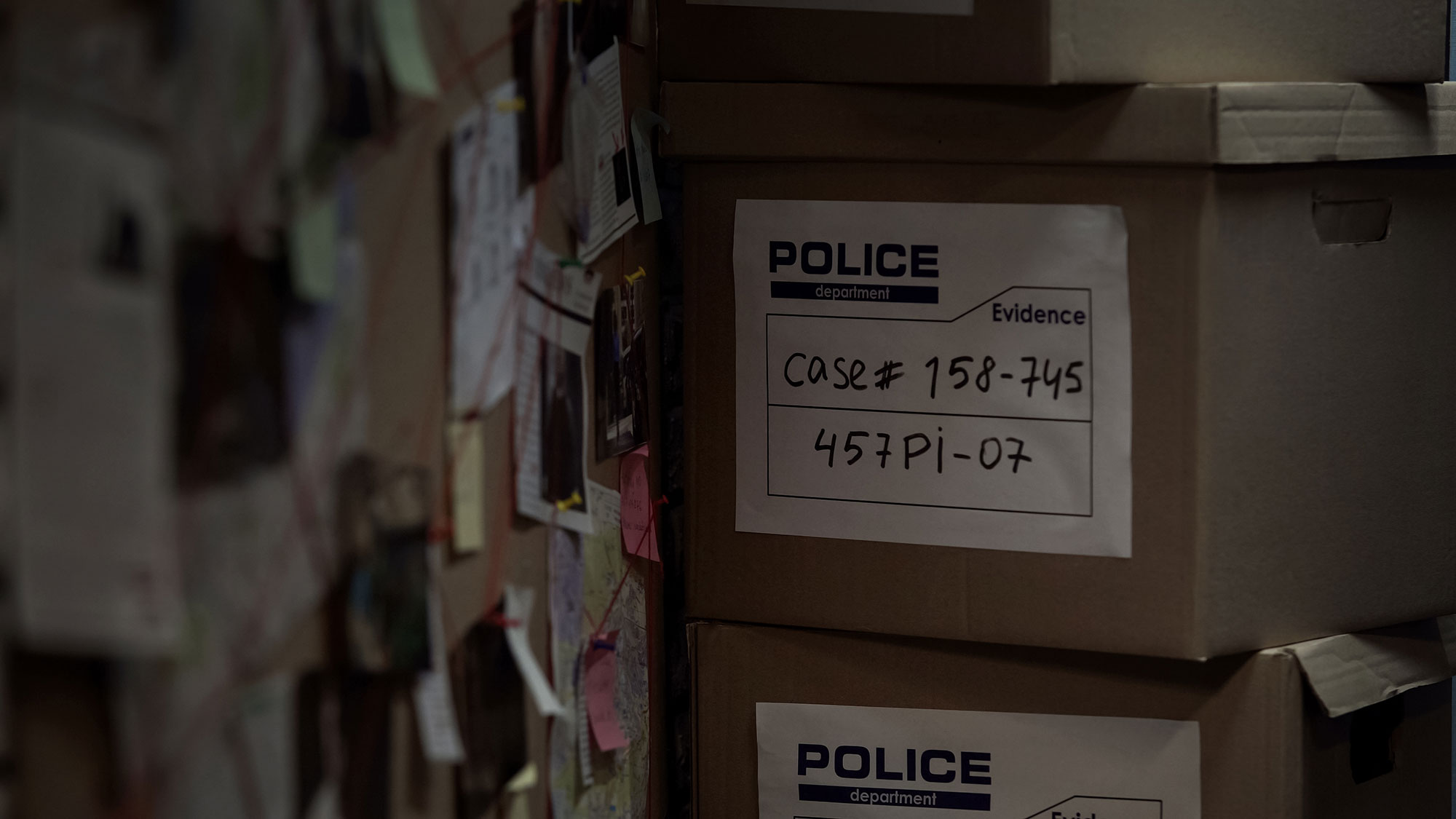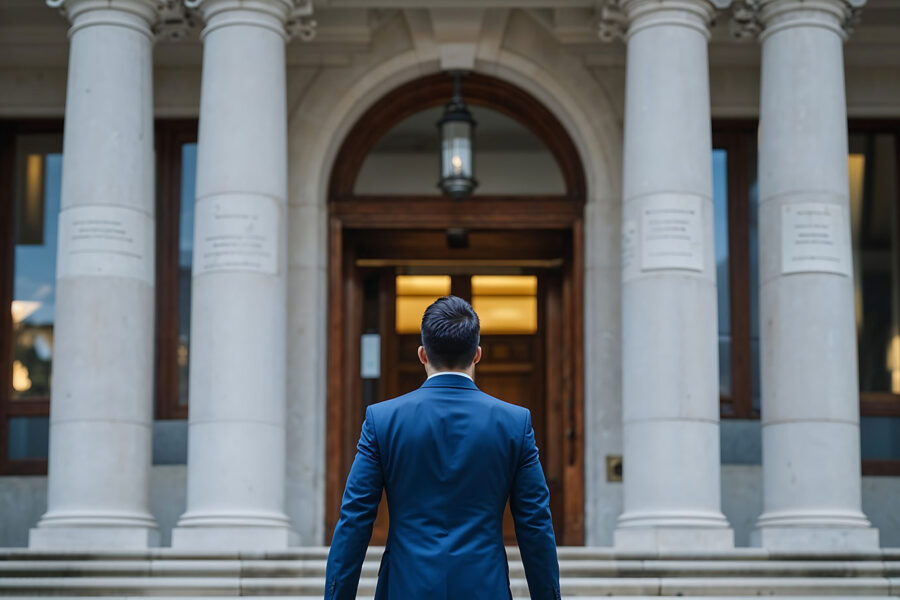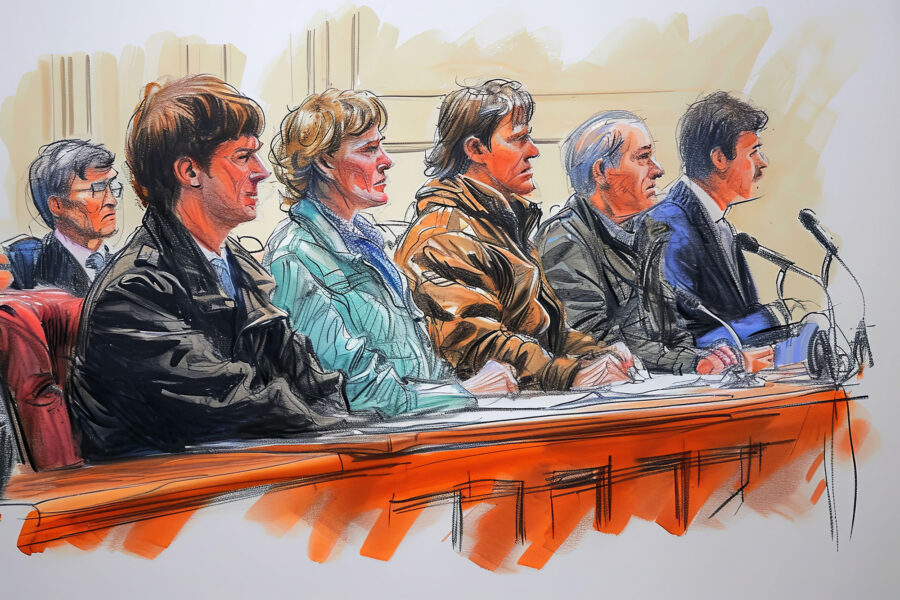When someone faces murder charges, the prosecution arrives at the courtroom with months of investigation behind them. Police detectives, crime scene analysts, forensic experts, and investigators have spent countless hours building their case. They’ve interviewed witnesses, collected evidence, analyzed forensic data, and constructed a narrative designed to secure a conviction.
What many people don’t realize is that this investigation is fundamentally one-sided. Law enforcement investigates to build a case for prosecution, not to uncover exculpatory evidence or explore alternative theories. Once they believe they have their suspect, the investigation often narrows rather than expands. This is where independent investigation becomes not just helpful, but critical to mounting an effective defense.
Why the Prosecution's Investigation Isn't Enough
The constitutional principle that a defendant is innocent until proven guilty is cornerstone to our justice system, but it doesn’t mean the system naturally seeks out evidence of innocence. Prosecutors have an ethical obligation to turn over exculpatory evidence, but they can only provide what they know exists. If law enforcement didn’t look for it, didn’t test for it, or didn’t pursue certain leads, that evidence may never surface without independent investigation.
Consider a typical homicide investigation. Once police identify a suspect, confirmation bias can subtly shape how they interpret evidence. Witnesses who don’t fit the theory may be dismissed as unreliable. Forensic tests that could provide alternative explanations may never be ordered. Alibi witnesses might not be interviewed thoroughly, or their statements might be interpreted skeptically. This isn’t necessarily malicious—it’s human nature. But for someone facing life in prison or the death penalty, human nature isn’t good enough.
What Independent Investigation Uncovers
An independent investigation begins with fresh eyes and no predetermined conclusion. Defense investigators revisit the crime scene, often discovering details that were overlooked or misinterpreted. They conduct their own witness interviews, frequently uncovering inconsistencies in prosecution witnesses’ statements or finding entirely new witnesses who were never contacted by police.
Forensic evidence demands particular scrutiny. Prosecutors often present forensic analysis as infallible science, but every forensic conclusion rests on assumptions, methods, and interpretations that can be challenged. Independent forensic experts can review the same evidence with different methodologies, different databases, or simply a more rigorous scientific approach. Blood spatter analysis, ballistics, DNA statistics, time of death estimates, and autopsy conclusions all involve professional judgment, and that judgment isn’t always correct.
The Human Element: Finding and Preparing Witnesses
Witness testimony often determines the outcome of murder trials, yet witness memory is notoriously unreliable and malleable. Independent investigators know how to interview witnesses without the intimidation factor that comes with a police badge. People are often more willing to share information with a defense investigator, particularly if they have concerns about police conduct or fear retaliation for contradicting the prosecution’s narrative.
Beyond finding witnesses, independent investigation includes preparing them for the realities of trial testimony. Witnesses who might provide crucial evidence can be destroyed on cross-examination if they’re not properly prepared. Our investigators work with witnesses to ensure their testimony is clear, consistent, and credible—not because we’re coaching them to lie, but because we’re helping honest people communicate the truth effectively under the intense pressure of a criminal trial.
Expert Witnesses: Building a Defense Team
Murder cases frequently turn on expert testimony. Prosecutors bring medical examiners, forensic scientists, and other experts to explain complex evidence to juries. Without equally qualified defense experts, the jury hears only one interpretation of technical evidence, and that interpretation inevitably supports guilt.
Independent investigation includes identifying, retaining, and working with expert witnesses who can offer alternative interpretations. A defense pathologist might determine that the victim’s injuries are consistent with an accidental fall rather than assault. A forensic toxicologist might reveal that drug interactions, not foul play, caused the death. A biomechanics expert might demonstrate that the defendant lacked the physical capability to inflict the injuries described. A digital forensics expert might prove that incriminating text messages were actually sent by someone else who had access to the defendant’s phone.
These experts don’t simply show up at trial. They need complete access to all evidence, time to conduct their own analysis, and resources to perform independent testing when necessary. This takes months of preparation and significant financial investment, but in a murder case, the investment can literally mean the difference between freedom and execution.
Technology and Modern Investigation
Modern murder investigations involve vast amounts of digital evidence: cell phone records, GPS data, social media posts, surveillance footage, computer files, and electronic communications. Prosecutors have entire forensic units devoted to extracting and analyzing this evidence, but their analysis focuses on incrimination.
Independent digital forensics experts can examine the same phones, computers, and electronic records to uncover evidence the prosecution missed or ignored. They can recover deleted messages that provide context to cherry-picked communications. They can analyze metadata that disproves the prosecution’s timeline. They can demonstrate that IP addresses don’t actually prove who was using a device at a particular moment.
Geographic information systems (GIS) specialists can create accurate reconstructions of crime scenes and movements that challenge the prosecution’s spatial narrative. Accident reconstruction experts can demonstrate that physical evidence is inconsistent with the prosecution’s theory of how the crime occurred. Video enhancement specialists can clarify surveillance footage that police claimed showed the defendant at the scene.

The Timeline: Why Early Investigation Matters
Evidence deteriorates, memories fade, and witnesses disappear. The sooner an independent investigation begins, the more likely it is to uncover crucial evidence. Surveillance footage gets recorded over. Witnesses move away. Physical evidence at crime scenes gets disturbed or destroyed. Cell tower data gets purged. Social media posts get deleted.
Some families wait to hire experienced counsel, hoping to save money or believing that public defenders provide adequate resources for investigation. The harsh reality is that most public defender offices, despite having talented attorneys, lack the funding for comprehensive independent investigation in every case. By the time families realize they need more resources and hire private counsel, critical evidence may be gone forever.
We’ve had cases where potential witnesses told our investigators they would have provided helpful testimony months earlier, but by the time we were retained, they’d been threatened, intimidated, or simply lost interest in getting involved. We’ve seen cases where surveillance footage that would have exonerated our client was recorded over before we could subpoena it. Early investigation isn’t just helpful—it’s often the difference between having a defense and going to trial with nothing but hope.
The Cost of Justice
Independent investigation is expensive. Experienced investigators command significant fees. Expert witnesses can cost tens of thousands of dollars. Forensic testing, reconstruction, and analysis require specialized equipment and laboratories. Families facing murder charges often struggle with the financial reality of mounting a proper defense.
But consider the alternative. A murder conviction means life in prison or death. It means never watching your children grow up, never experiencing freedom again, never clearing your name. When weighed against those consequences, the cost of a thorough independent investigation isn’t an expense—it’s an investment in survival.
More practically, comprehensive investigation often leads to better plea negotiations or even dismissal of charges before trial. Prosecutors are more willing to reconsider their case when confronted with evidence that their theory is flawed. We’ve had cases where independent investigation revealed such significant problems with the prosecution’s case that charges were reduced from murder to manslaughter, or even dismissed entirely. Those outcomes don’t happen when the defense simply accepts the prosecution’s version of events.
Investigation as Leverage
Strong independent investigation creates leverage in every phase of a criminal case. At preliminary hearings, defense investigators can identify weaknesses in the prosecution’s case that lead judges to reduce charges or lower bail. During plea negotiations, documented evidence that contradicts the prosecution’s theory gives defense attorneys powerful bargaining tools. At trial, a well-investigated defense forces the prosecution to actually prove their case beyond a reasonable doubt rather than relying on the defendant’s inability to present an alternative narrative.
Prosecutors know which defense attorneys have the resources and commitment to conduct thorough investigations, and they adjust their approach accordingly. Cases handled by attorneys with robust investigative teams tend to get better offers, more favorable plea deals, and more serious consideration of alternative theories. The prosecution knows that if they go to trial against a well-prepared defense, they might lose—and prosecutors hate losing high-profile murder cases.
The Bottom Line
Independent investigation in murder cases isn’t about inventing alternative realities or manufacturing false evidence. It’s about ensuring that the jury hears more than just the prosecution’s version of events. It’s about testing the government’s evidence, exploring alternative theories, and holding law enforcement accountable for thorough, unbiased investigation.
When your life hangs in the balance, you cannot afford to let the prosecution control the narrative. You cannot rely on overworked public defenders without investigative resources to match what the state brings to court. You cannot assume that the truth will emerge on its own through the criminal justice process.
At DeGuerin & Dickson, we’ve spent decades proving that independent investigation makes the difference between conviction and acquittal, between life in prison and freedom. We’ve secured favorable outcomes in cases that others deemed unwinnable, not through legal tricks or courtroom theatrics, but through painstaking investigation that uncovered the evidence needed to create reasonable doubt or prove innocence.
If you or someone you love faces murder charges, time is of the essence. Every day without independent investigation is a day when critical evidence might be lost forever. Contact our office today for a confidential consultation. We’ll evaluate your case, explain what investigation is needed, and begin building the defense that could save your life.















